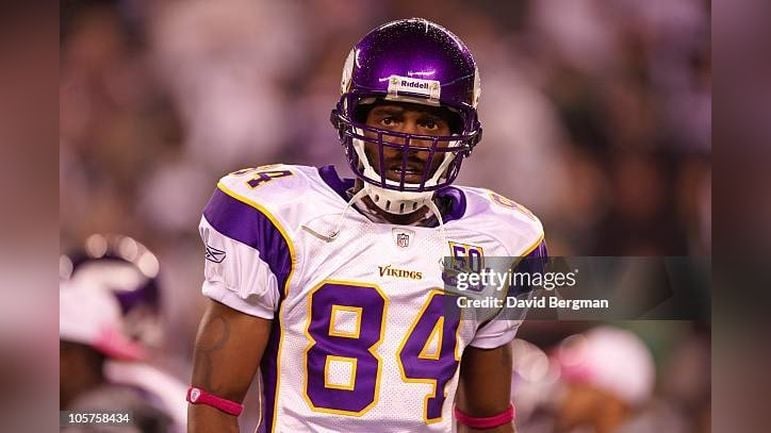


Earlier this month, the 33rd Team ranked its top 10 receivers in NFL history. With a quiet and lazy Sunday to round out the month, I’ll try my hand at a similar exercise. As I did with my top quarterbacks in history, I’ll keep this to a top five instead of a top 10. This focuses on the entire league but as you’ll see, there’s a Steeler’ slant to it.
Fun as it is to be contrarian, there’s no alternative answer than Rice here, though I think it’s a closer conversation than some think. Still, Rice remains the record holder in all major statistically categories – receptions, yards, and touchdowns – despite playing in an era where passing games weren’t as wide open or statistically gaudy as they are today. And it doesn’t look like anyone will break his marks anytime soon. He leads second place by 117 receptions, 5,403 yards, and 41 touchdowns.
His numbers are literally video game-esque and he was productive into his 40s. He surpassed 1,200 yards at age 41. Not only is the next-oldest to achieve that six years younger than Rice was, he is the only wide receiver in NFL history to have any yards in his 40s (Tom Brady, crazily enough, is the only other player with six). Rice led the league in receiving yards six times, including three-straight years from 1993 through 1995.
Sure, he benefited from having Hall of Fame quarterbacks delivering him the ball, but Rice’s greatness was dominant from start to end. I’m not convinced anyone will match his career output.
There will inevitably be an endless debate about eras. Hutson was among football’s receiving pioneers, a career that spanned from 1935-1945. Another counterpoint is Hutson benefitting from the NFL’s lack of talent in World War II when many players served overseas. Still, I contend Hutson is the most dominant player in NFL history, even more so than Rice, compared to the era he played in.
Hutson’s 1942 season was the best ever, finishing with 74 receptions, 1,211 yards, and 17 touchdowns. Great numbers for today and literally unseen then. That year, he had 47 more catches 640 yards, and nine touchdowns, than anyone else in the league. He was literally doubling everyone else’s production.
Consider this. Hutson finished his career with 99 touchdowns. No one in the NFL broke that mark until Steve Largent in 1989, more than 40 years later. Hutson’s mark still ranks 11th in NFL history. He scored 0.85 touchdowns per game and one every 4.9 receptions. I’m not sure which stat is more mind-bending.
When NFL Films ranked its Top 100 players in league history in 2010, Hutson placed ninth.
Along with stints as a New England Patriots and several other teams. From a pure talent perspective, there’s a strong case to be made Moss is No. 1. His combination of size, speed, the way he glided around the field, Moss felt unstoppable. A touchdown machine, he led the league in receiving scores five times, the last in his age-32 season.
His 2007 campaign with the Patriots was bonkers, Moss finishing with 98 catches, 1.498 yards, and 23 touchdowns. Defenses simply couldn’t slow him down let alone stop him. He was named to six Pro Bowls, four All-Pros, Rookie of the Year, and the 2000s Hall of Fame team.
Curiously, Moss made just one Pro Bowl over his final eight seasons, that ’07 season. His durability also isn’t discussed as much as it should be. In 14 years, he missed just six regular-season games.
In a different world, Brown could’ve pushed Rice for the top spot. His lack of longevity is what prevents him from climbing higher on this list. Putting aside all of his off-field issues, of which there are many, Brown was the best receiver I’ve watched live. And I don’t know who I’ll ever put above him.
AB was simply uncoverable during his prime run from 2013-2018. Bracket coverage, shadowing, jamming him at the line, nothing worked. Brown could take a short catch, a long way or beat a corner one-on-one downfield. His hands, tracking, body control, and route running were all elite. Once drafted into an NFL weight room, he got stronger and his playing strength was an underrated factor of what made him so good.
He had a six-year stretch where he caught at least 100 passes, 1,250 yards, and eight touchdowns every single season. And he did it all before he turned 31.
Had Brown continued that sort of stretch, even with some regression, over his next five years, he would’ve finished no worse than second in receptions and yards in NFL history. And he would’ve been ranked as the second-greatest receiver behind Rice on universal lists.
Among many other teams, including the Philadelphia Eagles, Owens played for during his career. Similar though not as dramatically as Rice, Owens’ longevity was impressive. In his age-35 season, he went over 1,000 yards with 10 touchdowns. At age 37, he finished with 983 receptions and nine scores, his final season in the NFL.
Three times, Owens led the NFL in touchdowns and though he never led the league in yards, he finished with over 1,000 nine times. The only receivers to ever do so more are Rice, Moss, and Mike Evans.
Owens finished his career eighth all-time in receptions, third in yards, and third in touchdowns.
Ranked in no order, here’s who I likely would’ve included in my top 10: Larry Fitzgerald, Calvin Johnson, Lance Alworth, Cris Carter, and Marvin Harrison Sr.